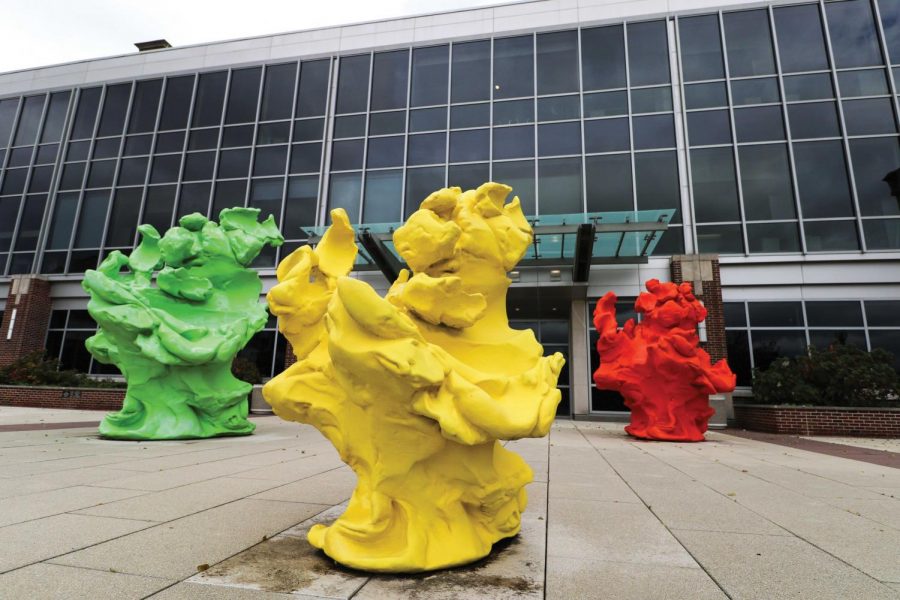Illinois research project receives $16 million grant
October 23, 2017
The population is projected to be nine billion by 2050. As Claire Benjamin, communications coordinator at the Institute for Genomic Biology said, how will such a population be sustained and fed? The answer lies in plants.
Recently, the U.S. Department of Energy awarded a five-year $16 million grant to a multi-institutional research project on sorghum. Sorghum is a grass that is grown worldwide and has significant potential as an alternative energy source, specifically solar energy.
The researchers are from Washington State, Carnegie Institution for Science, University of Rhode Island, University of Minnesota, University of Illinois at Urbana-Champaign and the United States Department of Agriculture. Dr. Andrew Leakey, a professor in the department of plant biology and an affiliate of the Carl R. Woese Institute for Genomic Biology, is a part of that research team.
Leakey’s lab is focused on the genes in sorghum related to photosynthesis and drought tolerance in an effort to minimize the water lost through stomata, holes in the leaves of the sorghum. By minimizing water loss, water use efficiency can be increased, which will allow genetic engineers to redesign sorghum to be grown in places where it previously couldn’t.
In doing so, his research could unlock 90 million acres of farmland and increase production by 30 percent.
Get The Daily Illini in your inbox!
John Ferguson, a post-doctoral researcher in Leakey’s lab, explained the process behind the research.
“Sorghum is really attractive for many reasons. It’s already a pretty drought- resistant crop,” he said. “We want to try to improve it even further than it already is to try to grow it in even more marginal land across the midwest and U.S. in general.”
Studying the specific genes proves to be important for mass production of sorghum.
“There’s loads of untapped genetic variation that’s available for us to do association mapping and genetic mapping to try and identify genes that are related to reduce water use that we can then incorporate into breeding programs,” Ferguson said.
In doing so, these plants can be genetically manipulated, which reduces the chances of up or down regulating those important genes, he said.
The ultimate goal of the research is to use sorghum as an alternative energy source. According to the recently released United Nations report on world hunger and security, the number of hungry people is on the rise again after a decade of decline. About 11 percent, or 815 million, people are said to be hungry. Millions are malnourished.
With the world population projected to be approximately 9 billion by 2050, concerns from the scientific community are growing as to how that population will be fed and how the environment will be sustained.
Benjamin said her thoughts on the issue and why plant science research is important.
“Plant science has a lot of potential to solve these grand challenges facing our society,” she said. “I strongly believe we have the power to meet the imminent demands of a growing, more urban population.”
Ferguson also said sustainability is important: about 90 percent of the global consumption of water is by agriculture, a number too high for sustainability.
“A lot of water is just lost as transpiration. It isn’t biochemically harnessed by the plants so there’s a lot of room for improvement,” he said. “Water is a finite resource; we’re running out of water. We need to do everything we can to try and conserve it for future generations.”
Benjamin pointed out how the University has a strong legacy in leading this type of research. At the institute, researchers are not just sitting in a lab, she said. They are actively working in the field in 100-degree weather.
“It’s a beautiful story that’s not really told,” she said.
Ferguson said this legacy is exactly why he decided to come to the University after receiving a Ph.D. in plant physiology and genetics in the United Kingdom.
“Illinois has got a great reputation across the world for studying global change and the response of plants to global change and also for understanding the mechanisms of photosynthesis and how they can be manipulated to improve the crops of the future,” he said







